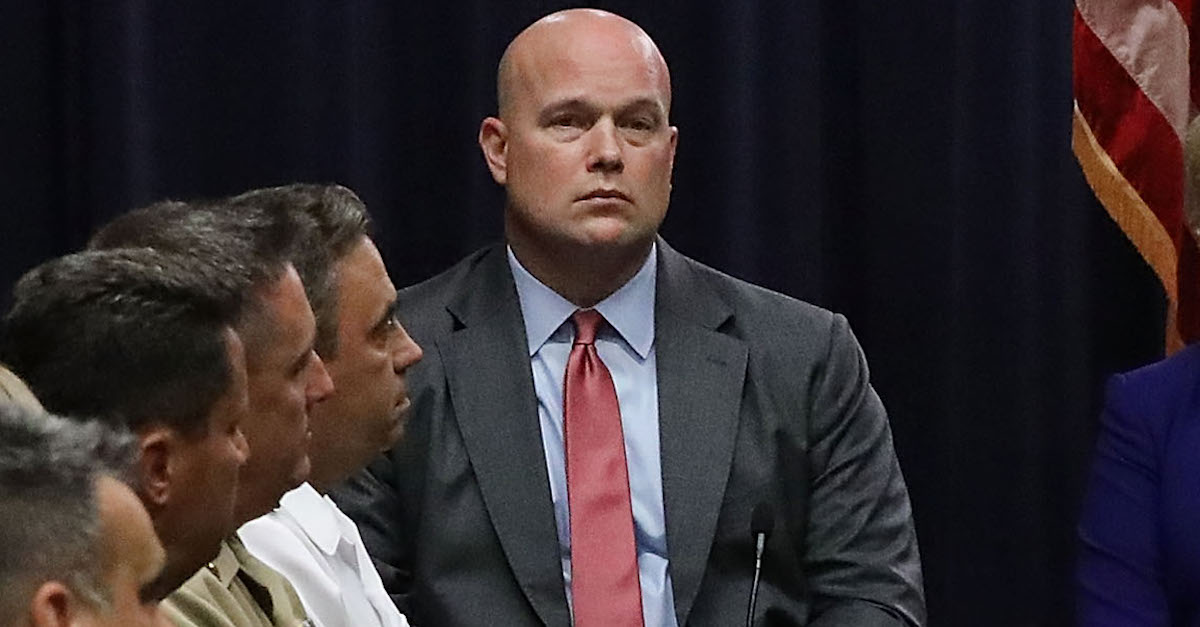
The Department of Justice’s (DOJ) Office of Legal Counsel (OLC) has officially opined on President Donald Trump‘s selection of Matthew Whitaker as acting Attorney General of the United States. The OLC has said that Whitaker’s appointment “accords with the plain terms of the Vacancies Reform Act of 1998” and is “consistent with the Appointments Clause of the Constitution.”
In other words, this is fine.
Critics such as Kellyanne Conway‘s attorney husband George Conway and former Acting Solicitor General of the United States Neal Katyal went so far as to pen an op-ed in the New York Times last week, arguing that exact opposite of what the OLC just said.
As Law&Crime’s Ronn Blitzer noted, they argued that Whitaker’s selection as acting AG violated the Appointments Clause of the Constitution.
“President Trump’s installation of Matthew Whitaker as acting attorney general of the United States after forcing the resignation of Jeff Sessions is unconstitutional,” they wrote. “It’s illegal. And it means that anything Mr. Whitaker does, or tries to do, in that position is invalid.”
This so happened to be an argument similar in nature to arguments made by those opposed to Robert Mueller‘s appointment as special counsel. Those critics, and the critics of the Whitaker appointment, have both argued that these men have to be confirmed by the U.S. Senate.
Challenges to Mueller’s authority have each time resulted in a judge ruling in Mueller’s favor. They have ruled that Mueller is an “inferior officer” rather than a “principal officer,” and therefore doesn’t need to be confirmed by the Senate.
Well, plot twist, the OLC is here to say that Whitaker, the man poised to take control of the Mueller investigation, isn’t a principal officer either.
“We also advised that Mr. Whitaker’s designation would be consistent with the Appointments Clause of the U.S. Constitution, which requires the President to obtain the ‘Advice and Consent of the Senate,’ before appointing a principal officer of the United States,” the OLC said. “Although an Attorney General is a principal officer requiring Senate confirmation, someone who temporarily performs his duties is not.”
“As all three branches of government have long recognized, the President may designate an acting official to perform the duties of a vacant principal office, including a Cabinet office, even when the acting official has not been confirmed by the Senate,” the OLC concluded.
Critics maintain that the precedents cited in OLC opinion were “incredibly thin” and that this was basically Whitaker “writing an opinion saying he is constitutional.”
There was also this.
OLC Opinion on Matthew Whitaker Appointment by Law&Crime on Scribd
[Image via Chip Somodevilla/Getty Images]